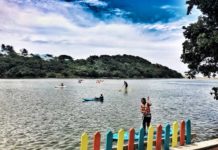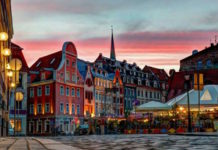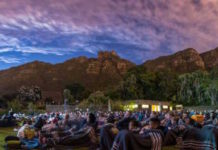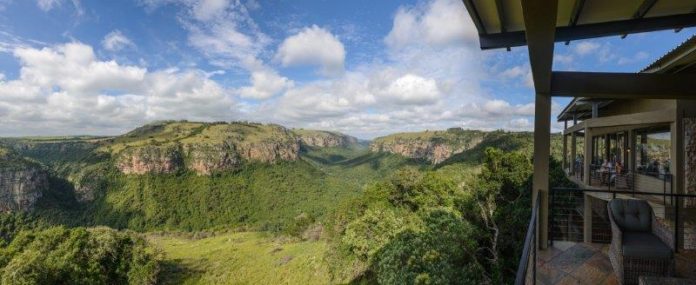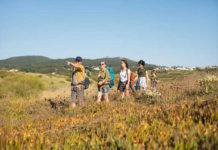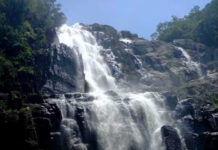With its natural abundance and family-friendly activities, the KZN South Coast is an established tourism-driven economy with many businesses reliant on incoming visitors. In its ongoing efforts to retain the area as a top destination, Ugu South Coast Tourism (USCT) has sought input from one of the country’s leading occupational health experts, Sean Chester, whose company has provided support to the National Occupational Health and Safety (OHS) Public, Private and Trade Union Committee; National Health Department and the KZN Department of Health (DoH) Covid Task Team.
“The KZN South Coast is a tourism hub for both local and international visitors, which means our businesses have had to keep at the forefront of all Covid-19 health and safety protocols,” explained CEO of USCT, Phelisa Mangcu. “With the arrival of a second wave, as well as the new 501Y.V2 variant which is 50 percent more infectious, we want to maintain a superior level of safety which is why we’re consulting with the industry best for the latest, science-based practices.”
Sean Chester, Exposure Specialist and Technical Director of Apex Environmental, award-winning occupational hygiene specialists, has provided local tourism businesses with valuable insight and protocols for minimising transmission during this time. Critical to this is the need for proper ventilation, an often-overlooked factor that can be detrimental to businesses.
“As a business owner myself, I understand the complexities involved in managing a workplace with Covid-19,” said Chester. “Besides the detrimental impact on health and logistics, the impact on productivity for a business owner is potentially devastating. This, and the fact that patrons aren’t leaving their houses, is challenging the economy of so many businesses such as tourism.”
Ventilation required to minimise aerosol transmission
Chester explained that the Department of Employment and Labour’s OHS Direction – which outlines the minimum protocols for workplaces – incorporates the World Health Organisation’s three Cs:
– Avoid contact with infected people.
– Avoided closed (poorly ventilated) areas.
– Avoid crowded spaces.
“There is an inadequate emphasis on the importance of ventilation,” he said. “This fact is highlighted through a rapidly growing body of research that the aerosol route of transmission is perhaps the most significant of all, and is abundantly clear to scientists that this transmission route is what’s responsible for super-spreader events.”
This was brought to the world’s attention in July 2020 when 239 international scientists shared their findings. However, Chester said that despite President Cyril Ramaphosa’s appeals for ventilation to manage risk assessment, the call often goes unheeded.
“We need to achieve around 15 L/s/p – or 12 air changes – per hour, of fresh air, which will result in around 99.9 percent risk reduction,” he continued. “Current National Building Regulations mandate only two air changes per hour for an occupied space, so many buildings have not been designed to prevent the spread of disease.”
How can businesses determine adequate ventilation?
Covid-19 has catalysed the ventilation research which indicates that, if a business opens doors and windows, allowing for a good through-breeze, the required ventilation should be achieved.
“The easiest way to check that you have sufficient ventilation is to have your carbon dioxide (CO2) concentrations monitored,” continued Chester. “There is a strong correlation between CO2 concentrations and adequate ventilation. This can be done by buying a carbon dioxide meter, or getting experts in to assess your premises to provide you with a Certificate of Covid-19 Compliance, which part of the Green Flag Initiative.”
What about air conditioners and fans?
“If you have a central air-conditioning system, you must check that there is a fresh-air make-up component in this system and, if there is, the air inlet dampers must be fully open. If there is no inlet vent or if you have cassette or wall-mounted split-unt air conditioning, then you do not have ventilation and you are potentially working in or entering a Covid-19 hot-spot. Pedestal and oscillating fans do the same thing – they transport and circulate aerosols. If you can’t introduce fresh air to the space, you can install a low-voltage UVC 254nm unit.”
What are some common healthy and safety mistakes?
Chester explained that, were everyone to follow the regulations, Covid-19 would be eradicated within a few weeks. However, bad habits continue to spread the virus and need to be tackled. He said that some of these include:
– The wearing of masks under the nose;
– The use of valved masks which release unfiltered air;
– The use single-layer masks or buffs which do not adequately prevent the transmission of droplets;
– The use of soap sanitizer;
– Insufficient social distancing space; and
– Public transport with insufficient ventilation.
He advised it’s best to use an FFP2 (N95-equivalent) mask whenever possible, low occupancy rate, good ventilation and 70% isopropyl alcohol sanitisers for the business setting, with owners and managers constantly enforcing the OHS Direction.
KZN South Coast tourism business support
USCT continues to support KZN South Coast tourism establishments by supplying updated information on safety protocols, which can be found:
– By downloading the free ‘Explore KZN South Coast’ app – available from Google Play or Apple stores;
– By checking www.visitkznsouthcoast.co.za;
– By joining the South Coast Tourism WhatsApp and emailer list (simply email [email protected].); and
– Following ‘South Coast Tourism’ on Facebook and YouTube, or @infosouthcoast on Twitter and Instagram for any breaking news updates.
Covid-19 compliance is vital to the survival of the tourism industry at this time, and with the KZN South Coast a key tourism destination, all industry members are urged to adhere to the relevant procedures.


